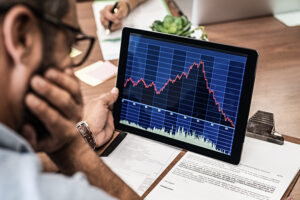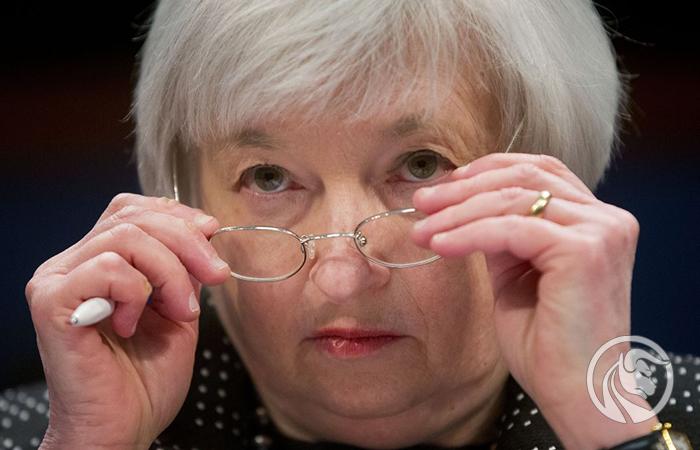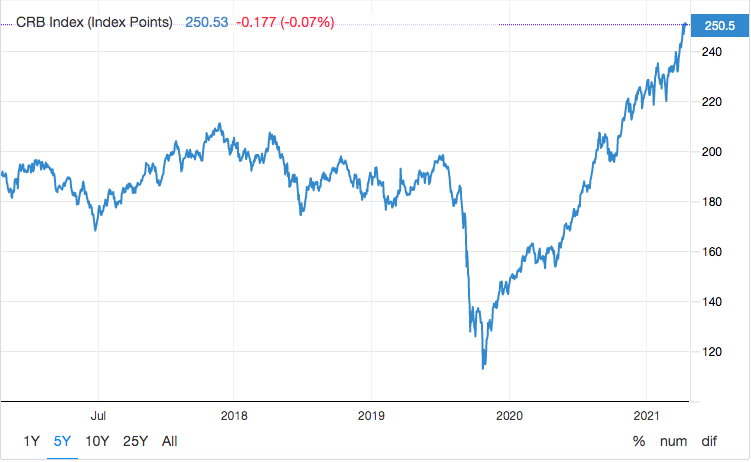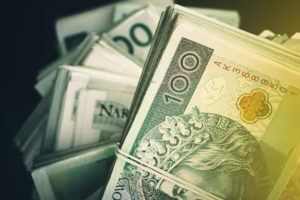Why is the Fed making tapering dependent on economic recovery?
Commodity prices have recently become the main reason why Federal Reserve The United States had to take into account when shaping monetary policy. Probably only the Secretary of the Treasury, Janet Yellen he stubbornly sticks to the rhetoric in which inflation is referred to as temporary. Yesterday we got readings of two indices - core and consumer inflation, while there is still producer inflation ahead of us. It does not seem to bring an element of surprise to the markets. Looking through the prism of yesterday's publications, it should rather be in line with expectations.
Fewer and fewer analysts and investors are asking themselves what to do next with monetary policy in the US. The reason is, among other things, that the decisions that will be made in November and announced yesterday were known earlier. So yesterday FOMC meeting it did not bring anything new, which we also saw from the reaction of the stock exchanges. Tapering is now a matter of time, which most central bankers believe will happen in November. However, there is a gateway that, in my opinion, will affect its timing. This gateway is the raw materials and the relentlessly prevailing economic cycles ...
Expensive raw materials? Only temporarily
High inflation (which is no secret) is, among other things, the result of high commodity prices. Following this lead, one might ask, when are commodity prices the highest? the answer seems trivial - when there is a demand for it. The demand for raw materials is shaped mainly by intensively working enterprises. Therefore, if we look at the business cycles through the prism of commodity prices, the market overheating phase takes place when the prices of shares (including mainly small and medium-sized companies) and commodities rise intensively. Their prices are lifted up during the inflationary phase of the economic recovery.
Does the Federal Reserve assume then that the recovery will be only temporary? Tapering it is in so much a “pleasant” operation of monetary policy in that it is incredibly flexible. Maneuvering interest rates carries much higher costs (mainly servicing large and constantly growing debt). Tapering, on the other hand, makes it possible to determine the size of the pace reduction, and the cancellation / extension or suspension itself does not have as many consequences as a change in interest rates. Removing economic stimulus by slowing asset purchases is not just as obliging to change monetary policy as rate hikes.
The above-mentioned commodity price index has been rising practically since mid-April. Since then, we have been observing a bull market in the equity markets. So, in theory and practice, everything fits together. The dependence of the length and size of the tapering on the economic recovery makes sense, as it opens the door to the free management of the slowing down of the asset purchase rate.
Tapering - Start, pause, or maybe extend?
The wicket, which I wrote about above, leaves full room for maneuver in terms of managing tapering and adjusting it to the current and future shape of the market. I will not be surprised if the topic of raising interest rates is muted over time. Looking through the prism of yesterday's meeting, the FED did not make a decision in September to further limit asset purchases. Nevertheless, members of the Federal Reserve believe that a gradual reduction in the scale of asset purchases, which will ultimately end in the middle of next year, is necessary for the economy. If the Fed decides to tapering in November, the reduction process could start in mid-November or mid-December.






















![Forex Club – Tax 9 – Settle tax on a foreign broker [Download the Application] Forex Club - Tax 9](https://forexclub.pl/wp-content/uploads/2024/02/Forex-Club-Podatek-9-184x120.jpg?v=1709046278)
![Trading View platform – solutions tailored to the needs of traders [Review] trading view review](https://forexclub.pl/wp-content/uploads/2024/03/trading-view-recenzja-184x120.jpg?v=1709558918)
![How to connect your FP Markets account to the Trading View platform [Guide] fp markets trading view](https://forexclub.pl/wp-content/uploads/2024/02/fp-markets-trading-view-184x120.jpg?v=1708677291)
![How to invest in ChatGPT and AI? Stocks and ETFs [Guide] how to invest in chatgpt and artificial intelligence](https://forexclub.pl/wp-content/uploads/2023/02/jak-inwestowac-w-chatgpt-i-sztuczna-inteligencje-184x120.jpg?v=1676364263)


![WeWork – the anatomy of the collapse of a company valued at $47 billion [WeWork, part II] wework bankruptcy story](https://forexclub.pl/wp-content/uploads/2024/04/wework-bankructwo-historia-184x120.jpg?v=1711729561)
![Adam Neumann – the man who screwed up Softbank [WeWork, part AND] adam neumann wework](https://forexclub.pl/wp-content/uploads/2024/04/adam-neumann-wework-184x120.jpg?v=1711728724)





![How to transfer shares to another brokerage office [Procedure description] how to transfer shares to another brokerage house](https://forexclub.pl/wp-content/uploads/2024/03/jak-przeniesc-akcje-do-innego-biura-maklerskiego-184x120.jpg?v=1709556924)

![The most common mistakes of a beginner trader - Mr Yogi [VIDEO] Scalping - The most common mistakes of a beginner trader - VIDEO](https://forexclub.pl/wp-content/uploads/2024/03/Scalping-Najczestsze-bledy-poczatkujacego-tradera-VIDEO-184x120.jpg?v=1711601376)
![Learning patience: No position is also a position - Mr Yogi [VIDEO] Scalping - Learning patience - No position is also a position - VIDEO](https://forexclub.pl/wp-content/uploads/2024/03/Scalping-Nauka-cierpliwosci-Brak-pozycji-to-tez-pozycja-VIDEO-184x120.jpg?v=1710999249)
![When to exit a position and how to minimize losses - Mr Yogi [VIDEO] Scalping - When to exit a position and how to minimize losses - VIDEO](https://forexclub.pl/wp-content/uploads/2024/03/Scalping-Kiedy-wyjsc-z-pozycji-i-jak-minimalizowac-straty-VIDEO-184x120.jpg?v=1710336731)


















